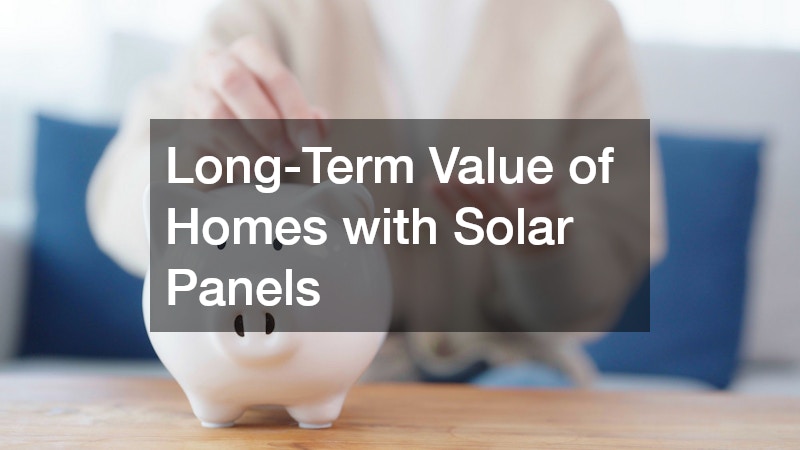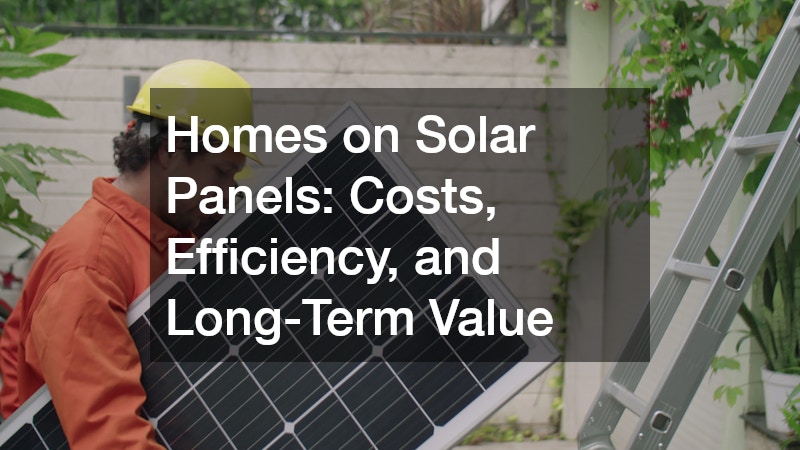As the world increasingly turns to renewable energy sources, the concept of ” homes on solar panels” is becoming more prevalent. The movement towards solar energy is fueled by the desire to reduce carbon footprints, cut down on energy costs, and harness a sustainable power source. With the promise of long-term savings and environmental benefits, more homeowners are considering the shift to solar. This article explores the costs involved, the efficiency of solar technology, and how it impacts the long-term value of homes.
By understanding these aspects, consumers can make well-informed decisions about their energy consumption.
The upfront costs of installing solar panels can be substantial, but there are numerous incentives and financing options available to ease this burden. Understanding the full range of financial considerations is crucial for homeowners contemplating solar installation. Furthermore, advancements in technology continue to enhance the efficiency of solar panels, making them a more viable option for a wider demographic. Among other benefits, homes on solar panels contribute positively to environmental sustainability while offering an appreciable return on investment over time.
Costs of Solar Panel Installation
The initial cost of installing solar panels can be daunting to many homeowners. Prices for solar panels and installation can vary significantly depending on the size, type, and complexity of the system. On average, a residential solar panel system can cost between $15,000 to $25,000. However, government incentives, tax credits, and rebates can significantly reduce these costs. For instance, the Federal Solar Tax Credit allows homeowners to deduct a portion of their solar costs from their taxes.
Besides governmental incentives, there are various financing options available that make solar energy more accessible. Homeowners can consider solar loans, leases, or power purchase agreements (PPAs). While loans and leases allow consumers to pay over time or rent the system, PPAs enable them to buy electricity generated by solar panels installed on their roofs at a fixed rate. Such options have made it easier for more people to overcome the initial financial hurdle associated with solar panel installation. Additionally, many companies are offering creative financial solutions tailored to different consumer needs.
Despite the upfront investment, the long-term financial benefits of solar panels are significant. On average, homeowners can expect to save approximately $10,000 to $30,000 over the lifespan of their solar energy system. These savings accrue because solar panels reduce electricity bills by providing a source of free, renewable energy. Moreover, as utility rates increase, the relative value of savings through solar energy grows. Therefore, investing in solar panels can provide not only energy independence but also a significant financial return over time.
Efficiency of Solar Panels
Solar panel efficiency is a critical factor in determining how effective a solar power system will be for a home. Efficiency refers to the ability of solar panels to convert sunlight into usable electricity. Advances in solar technology have led to significant improvements in efficiency, with modern solar panels achieving efficiency rates between 15% and 22%. This means that solar panels are becoming increasingly capable of capturing and converting more energy from limited amounts of sunlight. Efficiency improvements help maximize the return on investment for solar energy systems.
Environmental factors such as location, climate, and the positioning of solar panels play a significant role in the overall efficiency of a solar system. Homes located in areas with high sunlight exposure tend to see higher efficiency rates than those in less sunny climates. However, technology advancements have made it possible for even homes in cloudy regions to benefit from solar power. Innovative designs and materials are making solar panels more adaptable and efficient under diverse weather conditions. As a result, more homeowners, regardless of geographical location, are considering solar energy as a practical solution.
Long-Term Value of Homes with Solar Panels
Installing solar panels can significantly increase the long-term value of a home. One key advantage is that homes equipped with solar energy systems may have higher property values and sell faster than those without. Buyers often view solar panels as valuable additions that offer both immediate and future benefits in terms of energy savings and environmental impact. A study by the National Renewable Energy Laboratory (NREL) found that homes with solar panels sold, on average, 20% faster and for 17% more than comparable non-solar homes.
As the demand for sustainable living continues to rise, the resale value of homes on solar panels is likely to keep increasing. Potential buyers are becoming more educated and aware of the benefits of renewable energy sources. Investing in solar panels not only appeals to environmentally-conscious buyers but also aligns homes with future energy trends. In this way, solar panels enhance both the current and future marketability of a property, providing a competitive edge in the real estate market.




